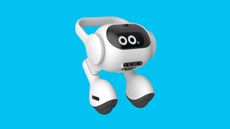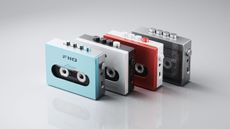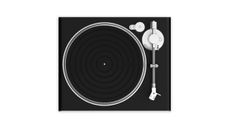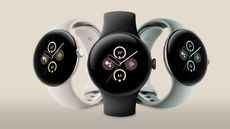Humane’s Ai Pin is a wearable personal assistant, powered by artificial intelligence
The launch of the Humane Ai Pin sees invisible computing and ubiquitous AI take a big step towards the mainstream
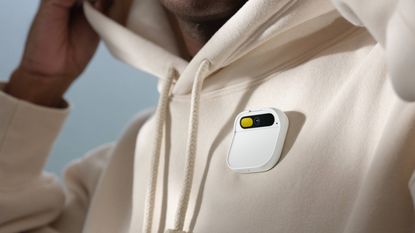
Humane wants the smartphone in your pocket to disappear. The start-up’s first production, the Ai Pin, is its first step on the road to a diaphanous blend of the real and the digital, a personal AI device that you wear and communicate with through speech and gesture. No screen, no buttons, no apps, no downloads. The public got a sneak preview of the device worn by models at Coperni’s S/S 2024 show in Paris on 29 September 2023, implying this kind of device will eventually become ubiquitous.
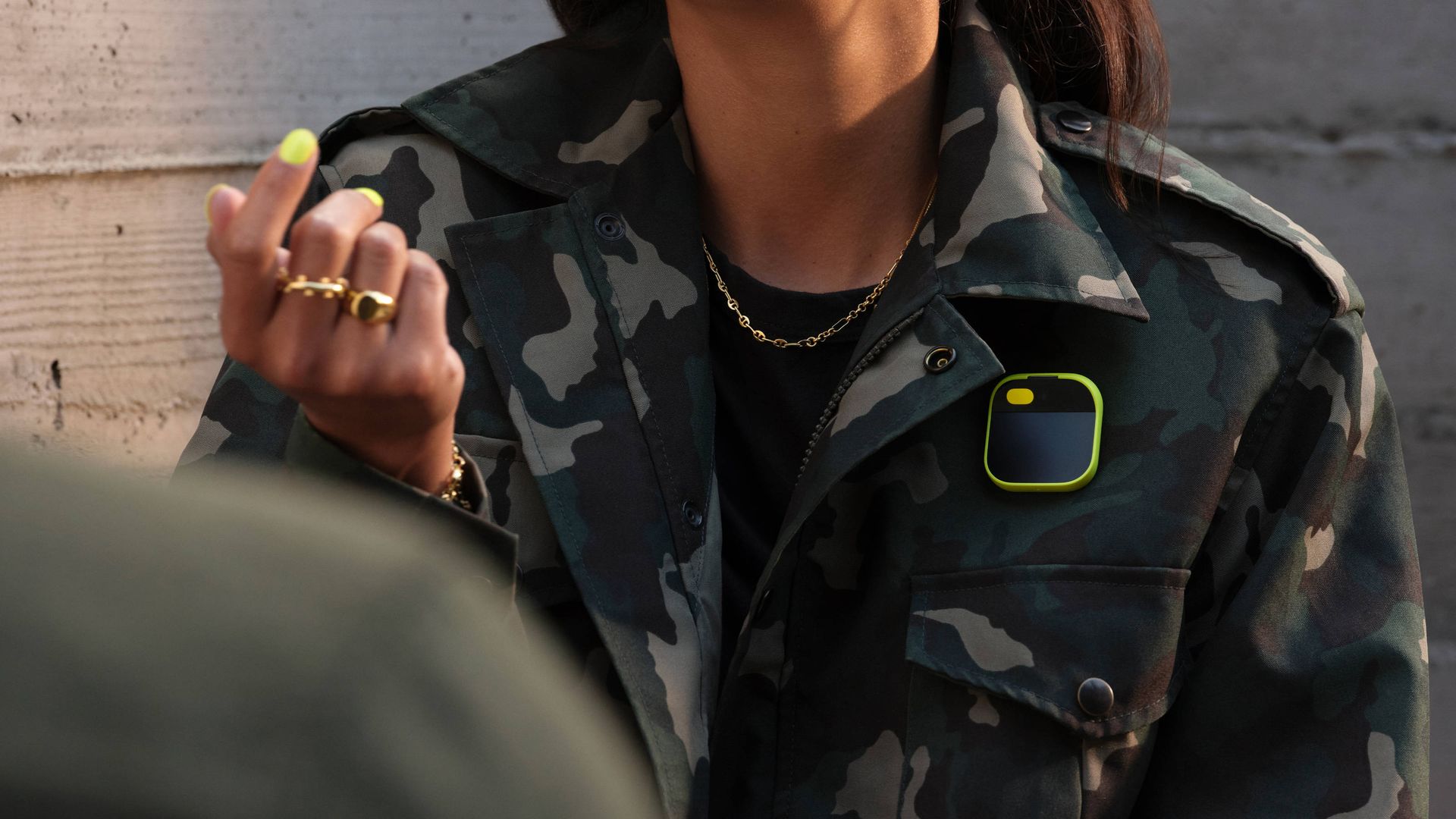
Humane's Ai Pin attaches to clothing
‘Pin’ is something of a misnomer, as the tech itself is a chunky badge, resembling a shrunken pair of bathroom scales that uses a magnetic catch to clip onto your clothing. Think of it as a personal digital assistant that has been shrunk to near invisibility, with sophisticated contextual software that ‘elevates your interactions with the world around you’.
In practice, this means interacting with the Ai Pin through speech and the touchpad that dominates the front surface. The device also incorporates an ultra-wide camera, depth and motion sensors, along with a ‘personic’ speaker designed to create a ‘bubble of sound’ – Bluetooth headphone connectivity is also available. All this is powered by a Snapdragon processor running Humane’s new Cosmos operating system.
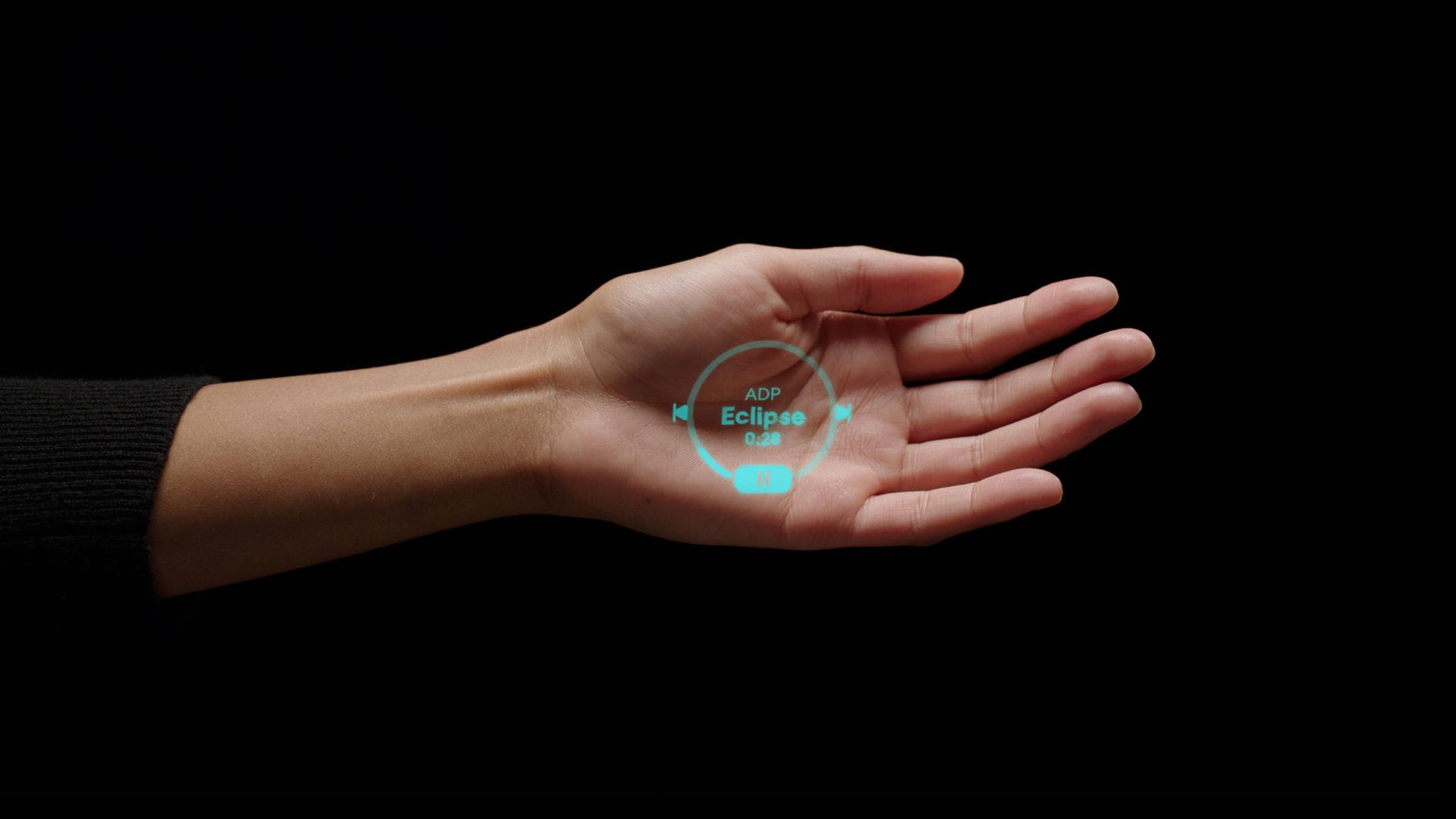
The Ai Pin projects information onto your hand
Aside from speech and touch, the other interaction is via Humane’s Laser Ink Display, a projection system that uses your palm as a screen. How does Humane envisage the Ai Pin working? Many of the functions are intended to operate seamlessly in the background, such as voice search, translation, and even a tool that visually analyses your food to help with your nutrition.
Overall control and data management is undertaken via the Humane.center hub, and the company stresses that privacy is paramount in its strategy, with no always-on function awaiting a ‘wake word’ and a light showing when the device is active. A couple of decades into the smartphone era, and the sages of Silicon Valley are thinking hard as to the shape and form of the next multi-trillion-dollar personal technology. The idea of a portable, personal AI assistant that doesn’t need to be tethered to a smartphone might be someone’s idea of freedom. What will make or break the Ai Pin, however, is how seamless that experience will be.
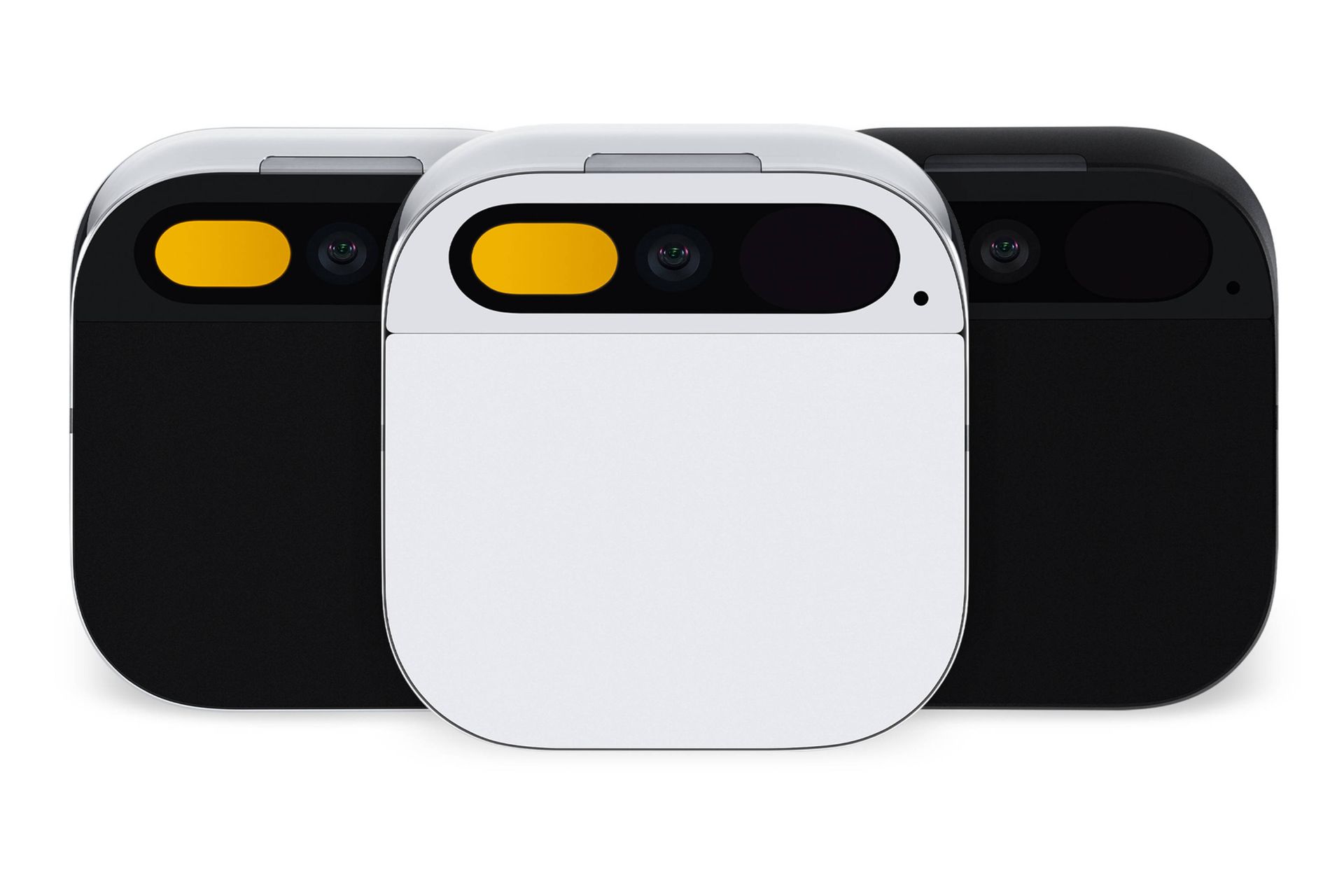
The Ai Pin is available in three colours
The past year or so has been dominated by AI, and the way it threatens to redraw our definition of creativity, be it in product design, photography, car design, or architecture and writing itself. Humane has skipped the question of AI-enhanced creativity and gone straight to seeing the tech as a silent, near invisible partner for everyday uses.
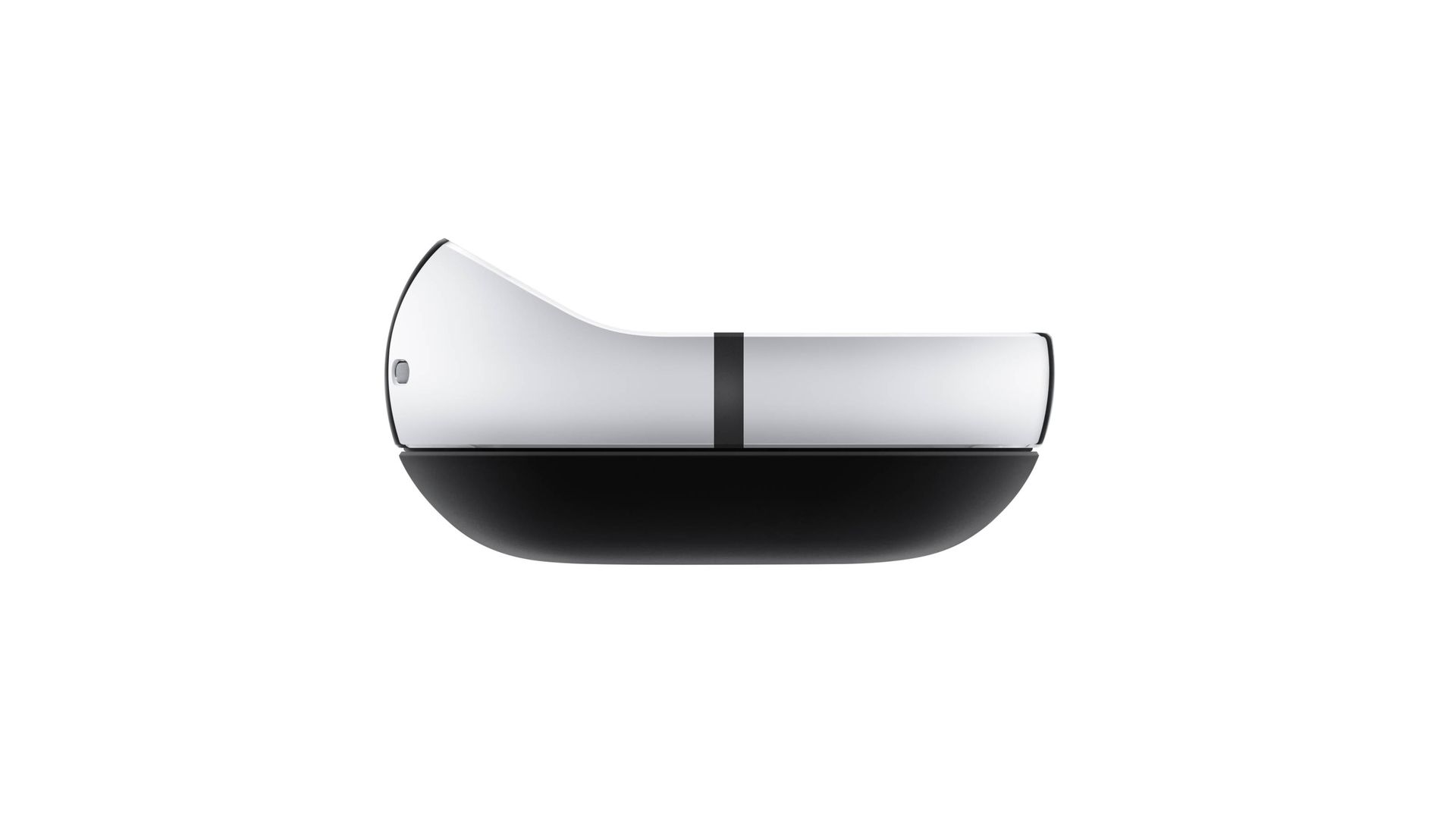
The Ai Pin is slender and has a separate battery booster pack
The Californian company was founded in 2019 by Imran Chaudhri and Bethany Bongiorno, both of whom previously worked at Apple. The journey to the Ai Pin has taken several years, as the team scratch-built a software and hardware platform that was robust, flexible and sufficiently small to represent a real step away from the smartphone. Collaborators include TIDAL, OpenAI, Microsoft and T-Mobile – it’ll be the last’s network that powers the first devices.
Initially, it could well be the world of work that benefits most from integrating the Ai Pin into existing systems, with the hands-off nature of a camera-enabled device promising a functionality akin to Google’s Glass experiment. Now that AI has infiltrated our smartphones and underpins substantial swathes of the nebulous relationship we have with digital assistants, telephone banking, and many, many other human-machine interfaces, is making it even less visible the way forward?
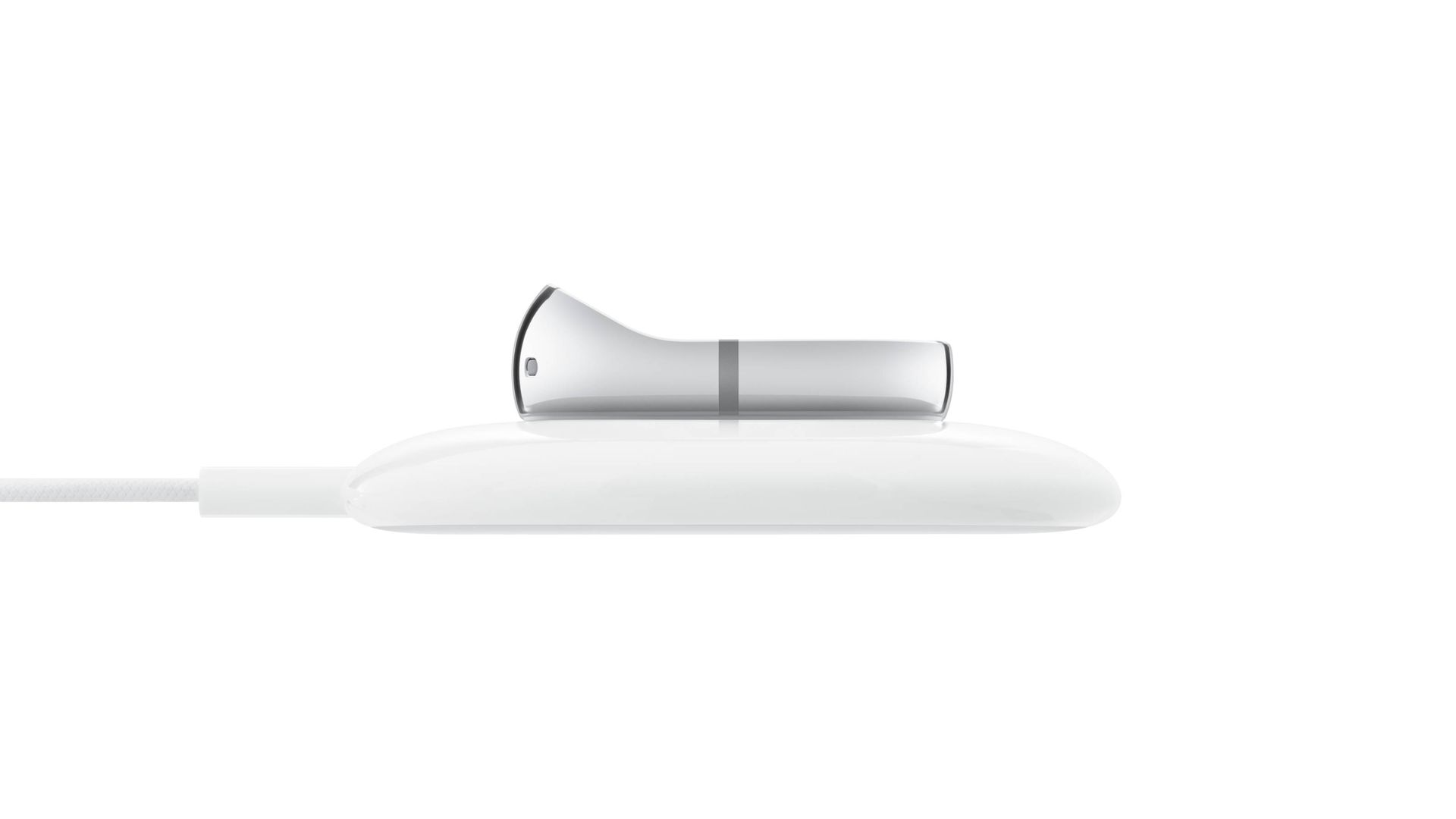
The Ai Pin ships with a separate chargepad
’The first Humane device will allow people to bring AI with them everywhere,’ Chaudhri said earlier this year, and the company is committing itself to ‘a future where AI seamlessly integrates into every aspect of our lives and enhances our daily experiences’. Is it a future based on wants or needs?
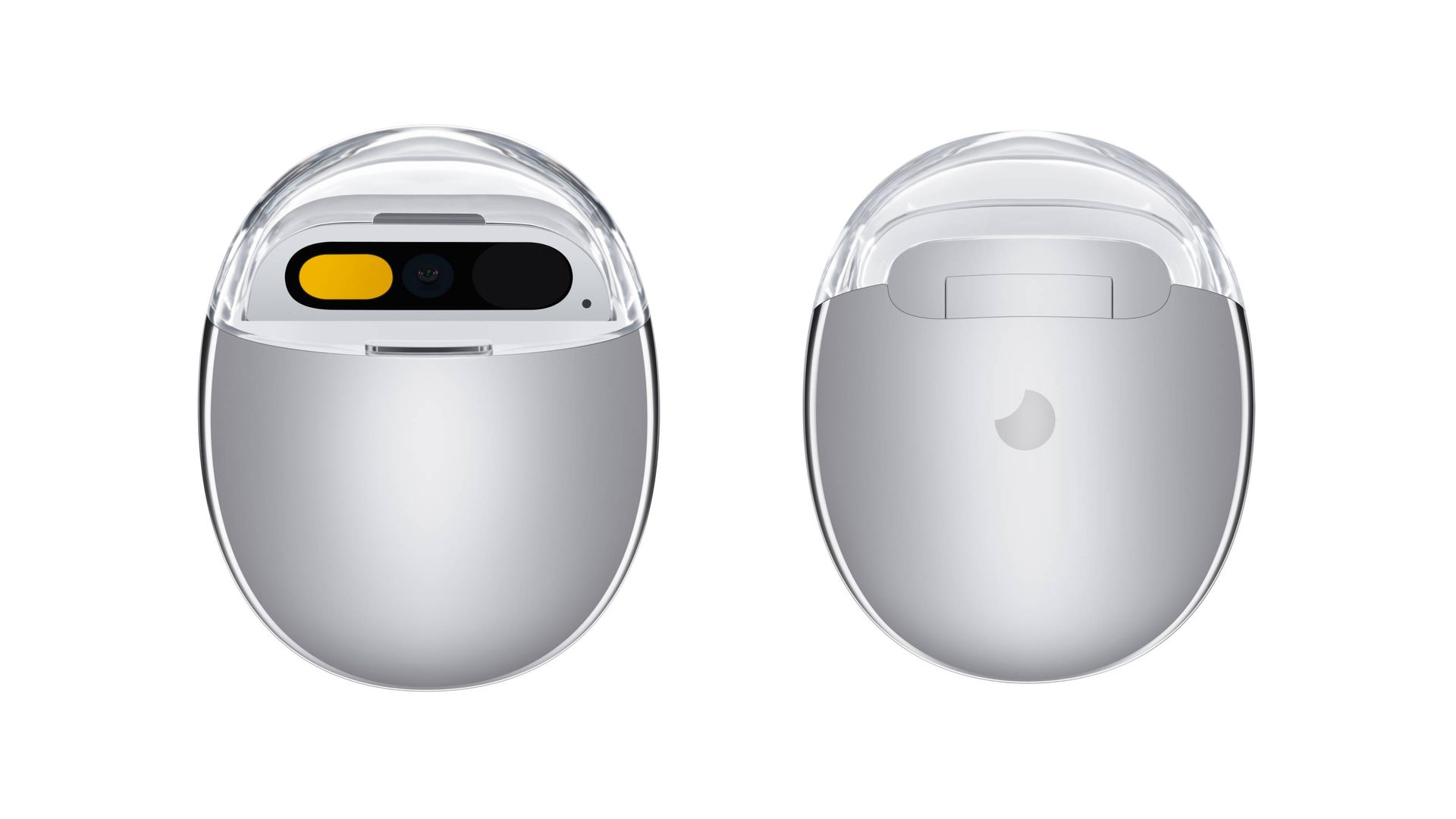
The Humane Ai Pin in its charge case
Ai Pin is available in three colours, Eclipse, Equinox, and Lunar. The system will be available in the US from November 2023 and starts at $699 with a monthly subscription of $24, including the device, two battery boosters, charge pad, charge case, cloud storage, cable and adapter. For more information, visit Hu.ma.ne
Wallpaper* Newsletter
Receive our daily digest of inspiration, escapism and design stories from around the world direct to your inbox
Jonathan Bell has written for Wallpaper* magazine since 1999, covering everything from architecture and transport design to books, tech and graphic design. He is now the magazine’s Transport and Technology Editor. Jonathan has written and edited 15 books, including Concept Car Design, 21st Century House, and The New Modern House. He is also the host of Wallpaper’s first podcast.
-
 Gallery Fumi makes LA debut with works from Max Lamb, Jeremy Anderson and more
Gallery Fumi makes LA debut with works from Max Lamb, Jeremy Anderson and moreFumi LA is the London design gallery’s takeover of Sized Studio, marking its first major US show (until 9 March 2024)
By Tianna Williams Published
-
 Brazil’s Casa Subtração contrasts dramatic concrete brutalism with openness
Brazil’s Casa Subtração contrasts dramatic concrete brutalism with opennessCasa Subtração by FGMF is defined by brutalist concrete and sharp angles that contrast with the green Brazilian landscape
By Ellie Stathaki Published
-
 Level up at the The Residence, Claridge’s new André Fu-designed penthouse
Level up at the The Residence, Claridge’s new André Fu-designed penthouseClaridge’s The Residence is a new purpose-built two-tier glasshouse overlooking London’s skyline
By Lauren Ho Published
-
 CES 2024: truly all the tech you need and then some
CES 2024: truly all the tech you need and then someThe best tech of CES 2024, from next-level laptops to mindful mirrors, audacious audio and more innovation than you can shake a smart bot at
By Jonathan Bell Published
-
 Cassette players for analogue audio lovers as we explore tapes’ slow and steady revival
Cassette players for analogue audio lovers as we explore tapes’ slow and steady revivalBrand-new cassette players, refurbished classics and the best second-hand sources to experience analogue audio in 2024
By Jonathan Bell Published
-
 Quirky tech for 2024, from robotic space dogs to extreme speakers
Quirky tech for 2024, from robotic space dogs to extreme speakersOur pick of quirky tech for the year ahead embraces ten more eccentric products, partnerships and conceptual dreams
By Jonathan Bell Published
-
 Year in review: top 10 gadgets of 2023, as selected by Wallpaper’s Jonathan Bell
Year in review: top 10 gadgets of 2023, as selected by Wallpaper’s Jonathan BellOur top 10 gadgets of 2023 are, by definition, items we do not need. Yet, from an e-ink tablet to a flip phone and a coffee maker, they are things we couldn’t help but admire
By Jonathan Bell Published
-
 Huawei’s new MatePad Pro 13.2-inch tablet has big-screen credentials
Huawei’s new MatePad Pro 13.2-inch tablet has big-screen credentialsThe feature-packed Huawei MatePad Pro 13.2-inch is a new hero for curating, creating and reshaping beautiful content, wherever you are
By Jonathan Bell Published
-
 Wallpaper* gift guide: shopping with technology editor Jonathan Bell
Wallpaper* gift guide: shopping with technology editor Jonathan BellThe best tech gifts, from gaming on the go to a Japanese record player, and the odd creative curveball
By Jonathan Bell Published
-
 Three new record players offer fresh ways to experience old vinyl
Three new record players offer fresh ways to experience old vinylEach of these recently released record players makes it easy to bring the warmth of vinyl back into your daily listening habits
By Jonathan Bell Published
-
 Google Pixel Watch 2 wants to look after you
Google Pixel Watch 2 wants to look after youThe Google Pixel Watch 2 harnesses the power and potential of FitBit, which the company acquired in 2022, for both personal wellness and safety
By Pei-Ru Keh Published



